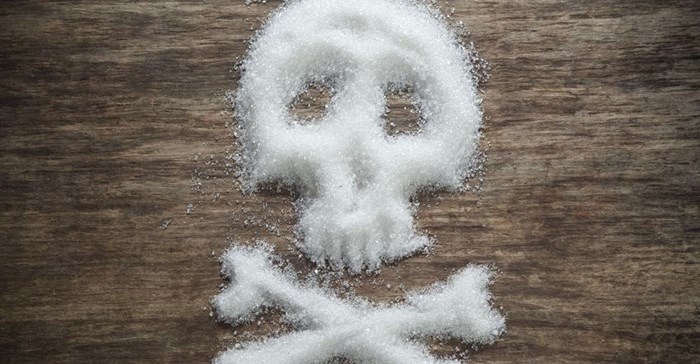Mary Poppins was wrong. A spoonful of sugar is more likely to land you in hospital, than help the medicine go down. So a proposed sugar tax is designed to keep you away from the sweet stuff.
In South Africa, socio-economic circumstances often result in people not getting adequate screening for preventable lifestyle conditions, such as diabetes, cancer and stroke.
In addition, communities are largely exposed to highly processed food and drinks, and products that are high in sugar, salt and fat. The expansion of retail shops and mushrooming of spaza shops means that these types of food are reaching even the rural areas. In the process of expanding their market share, the beverage industry is making sugar sweetened beverages (SSB’s) easily accessible. These ‘cool drinks’ are often convenient drinks, relatively inexpensive and have no nutritional value.
WHO sugar-intake recommendation
The World Health Organisation recommends that added sugar be limited to 5-10% of daily calorie intake. For adults with a normal weight, this equates to a maximum of six-twelve teaspoons of added sugar, whereas just one fizzy drink contains between seven to 10 teaspoons of sugar with no nutritional benefits. Adults who choose to consume just one sugar-sweetened beverage (SSB) a day, which includes fruit juice, increase their likelihood of being overweight by 27%. This statistic almost doubles for children at an alarming 55%.
Professor Karen Hofman, Director at Priceless SA says that inaction over the intake of sugary drinks could lead to a growing obesity epidemic. Projections indicate that by 2017 there will be an additional 1,2m obese adults in SA, more than a quarter of this due to increased SSB intake. Today, an estimated 70% of women and a third of men are classified as overweight or obese.
Obesity-related diseases
The South African National Department of Health has set a target of reducing the number of people who are obese or overweight by 10% by 2020. Its strategic plan for lifestyle diseases identifies several cost-effective preventive interventions, one of which is the implementation of the proposed SSB tax in 2017.
The reality is that death rates from these obesity-related lifestyle diseases are growing fast. In 2011 diabetes, in many instances preventable, was ranked as the second-leading cause of death for South Africans aged between 15 and 49. Moreover, moderate obesity is associated with an 11% increase in healthcare costs, and severe obesity brings a 23% increase in these costs. Research shows that by 2030, total healthcare expenditure as a result of adult diabetes alone will cost South Africa between $1-2bn.
Sugar tax: a win-win situation
Fiscal interventions like the taxation of sugar-sweetened beverages are a win-win: they raise revenue and at the same time effectively prevent disease and health expenditures. A 20% tax on SSBs could reduce the number of obese people in SA by close to a quarter of a million within the first three years and could generate revenue of approximately R6bn per annum.
South Africa’s healthcare budget, like others around the world, is not infinite. This means every rand spent on one intervention is a rand not spent on another. Trade-offs are inevitable and how we prioritise resources fairly and equitably must be based on evidence of what works and at what cost. Acting in this way ensures the population receives good value for its healthcare rand.

































